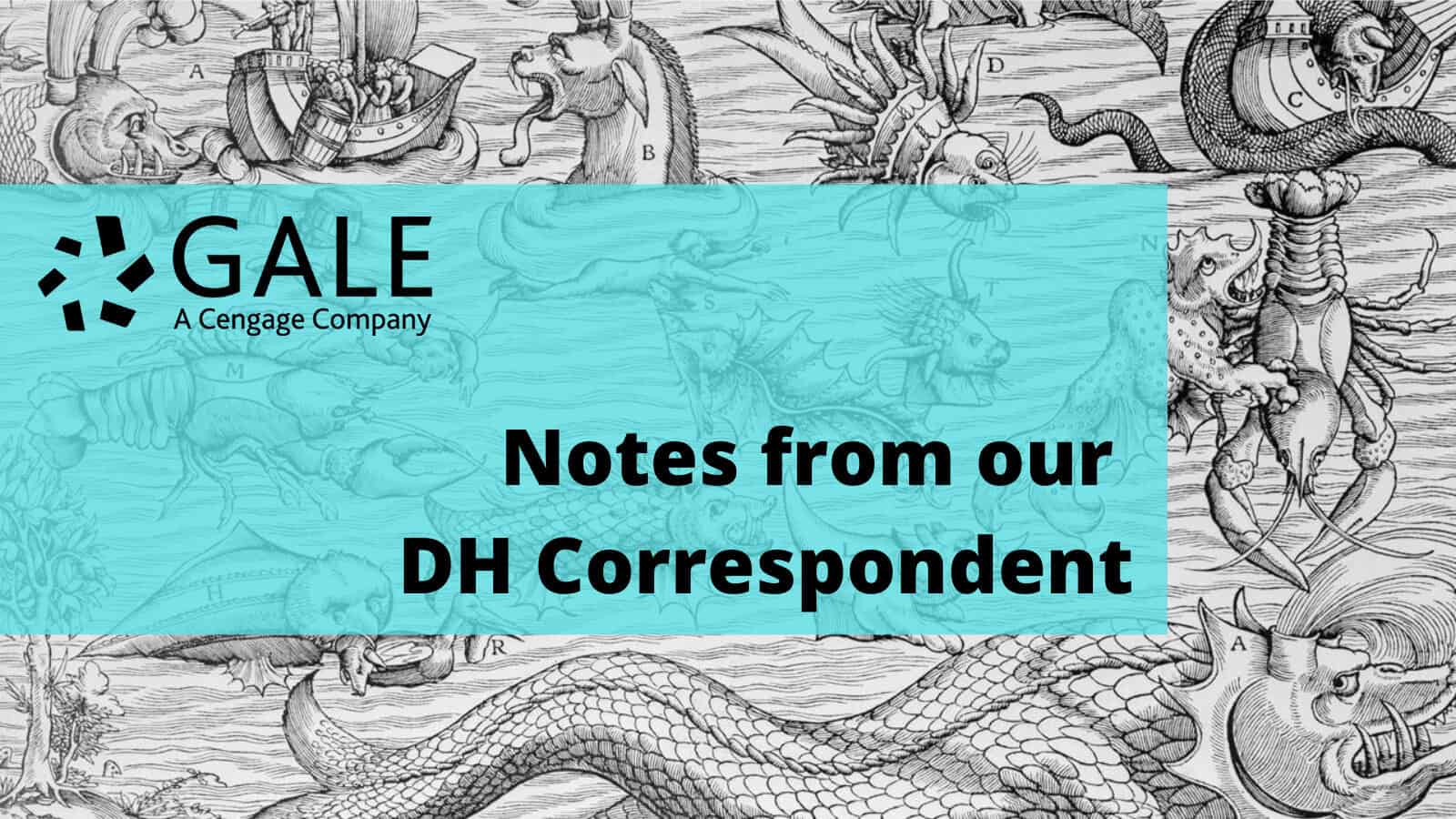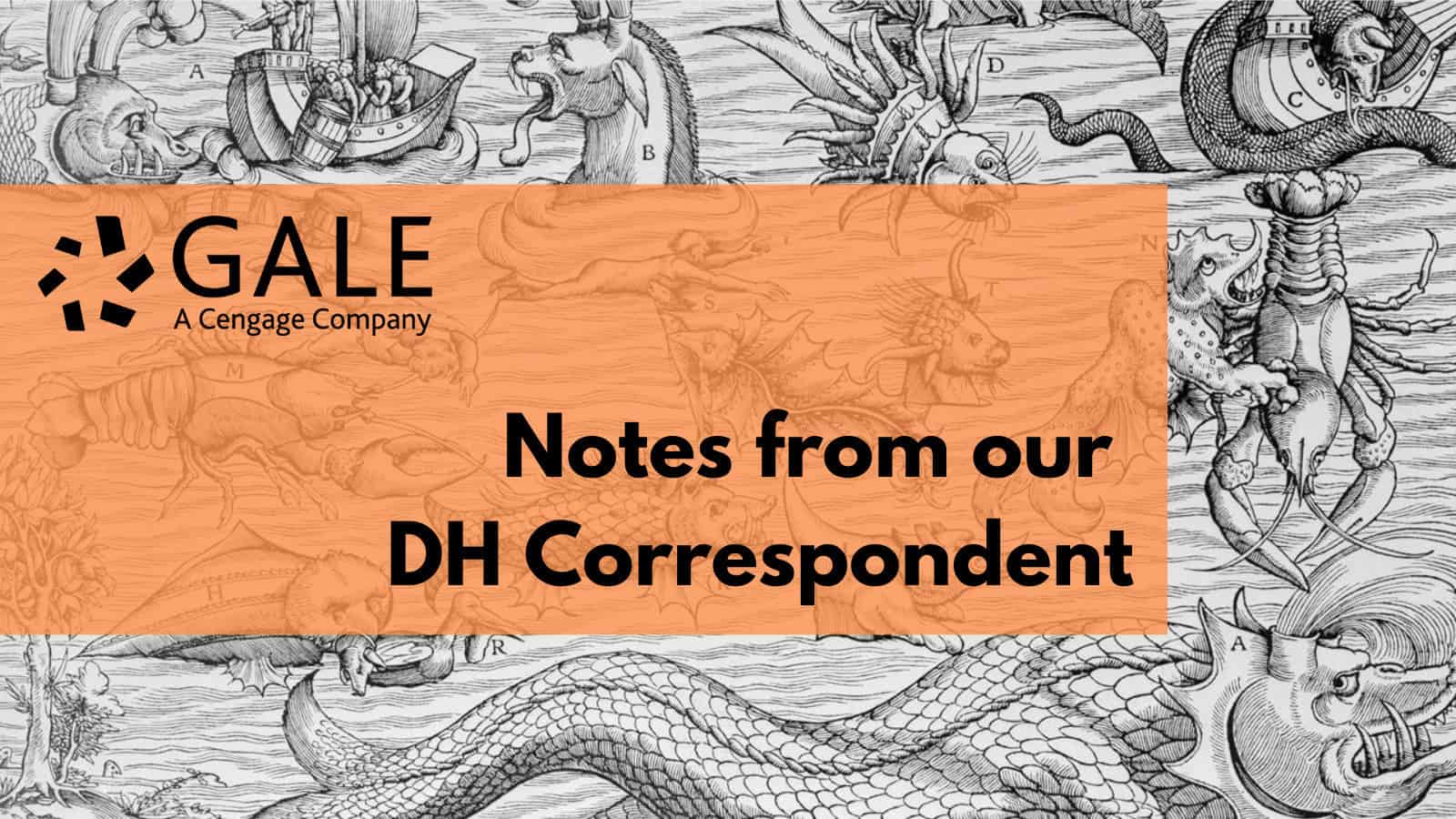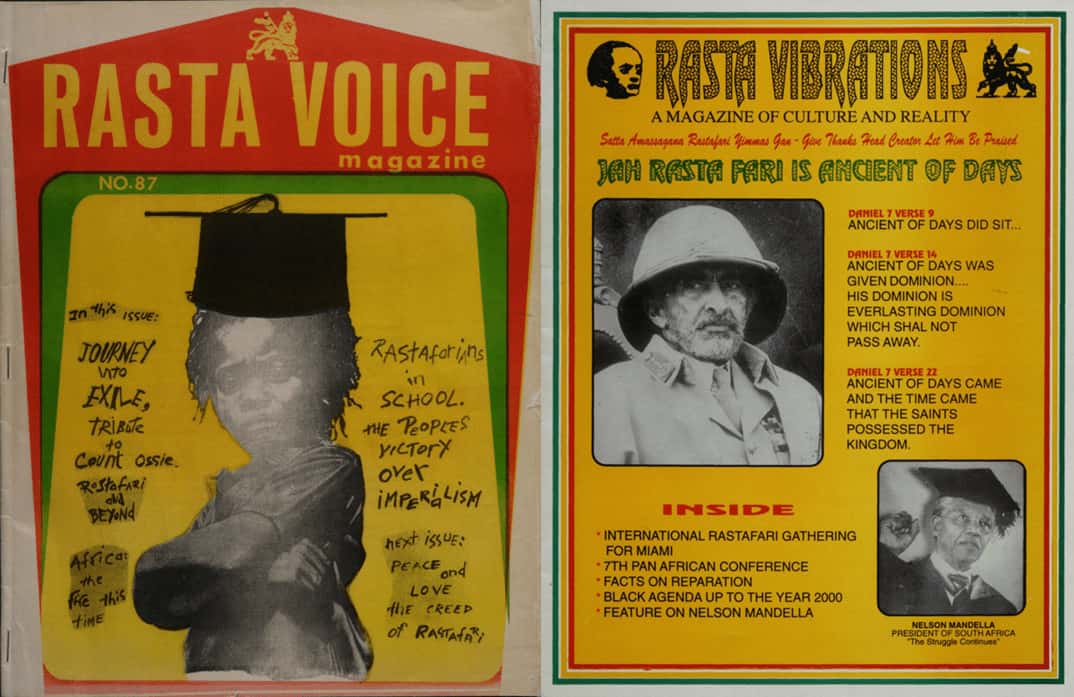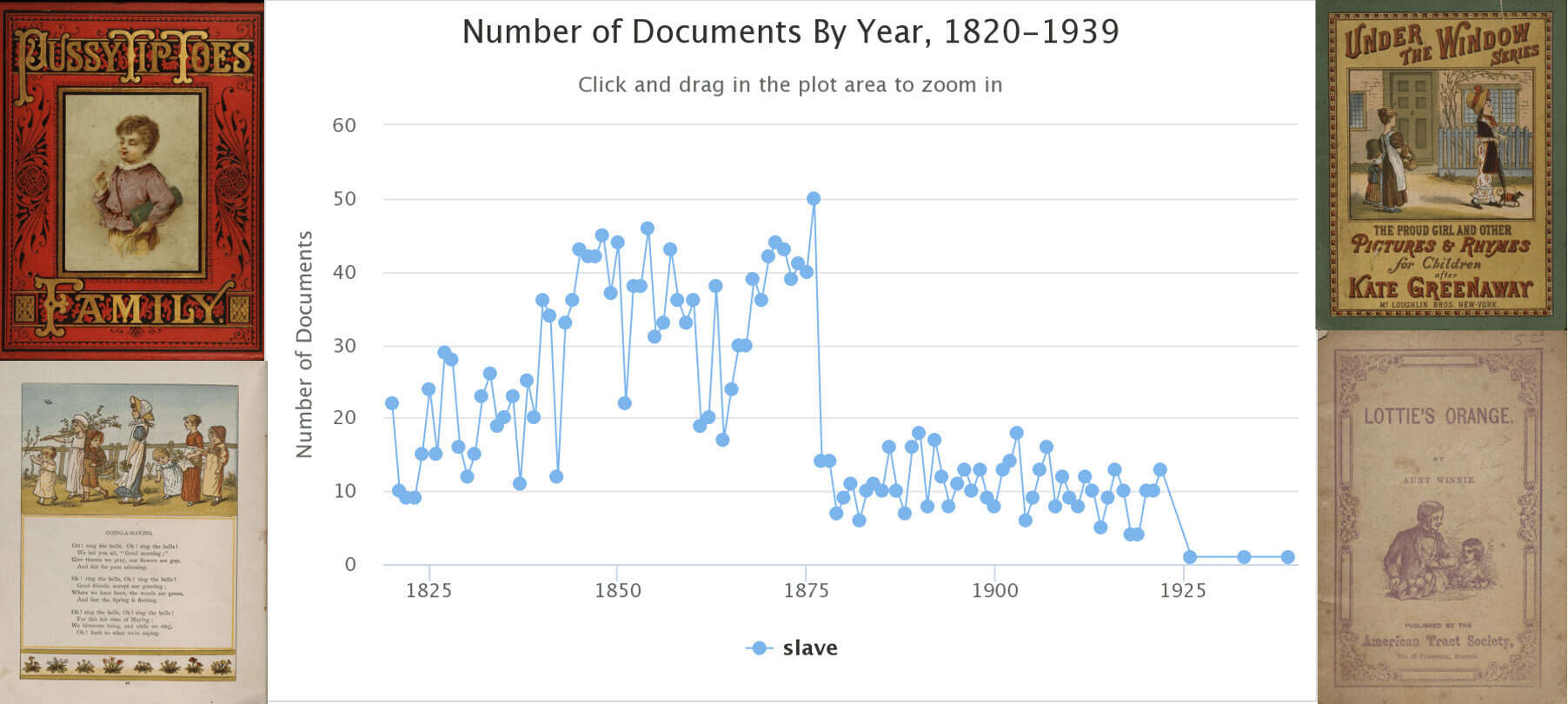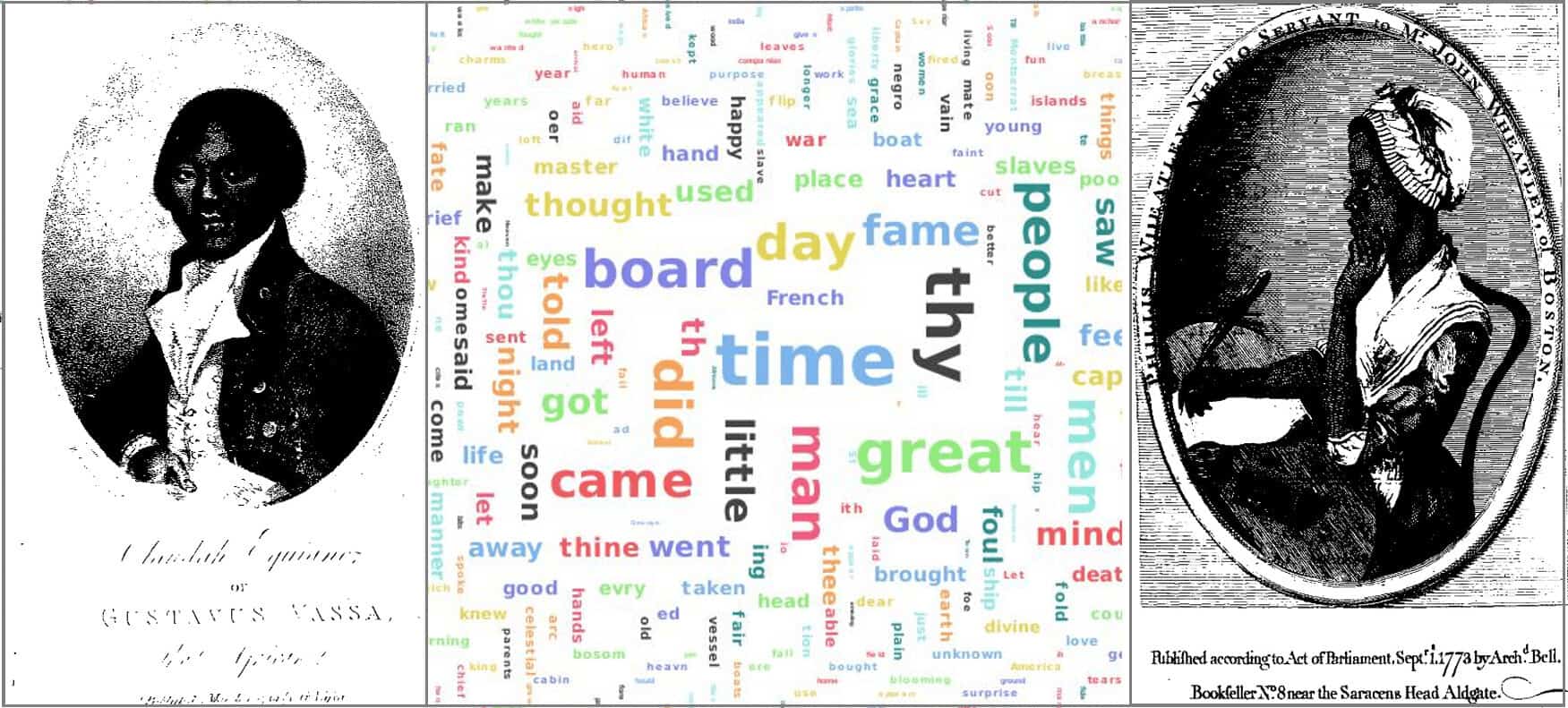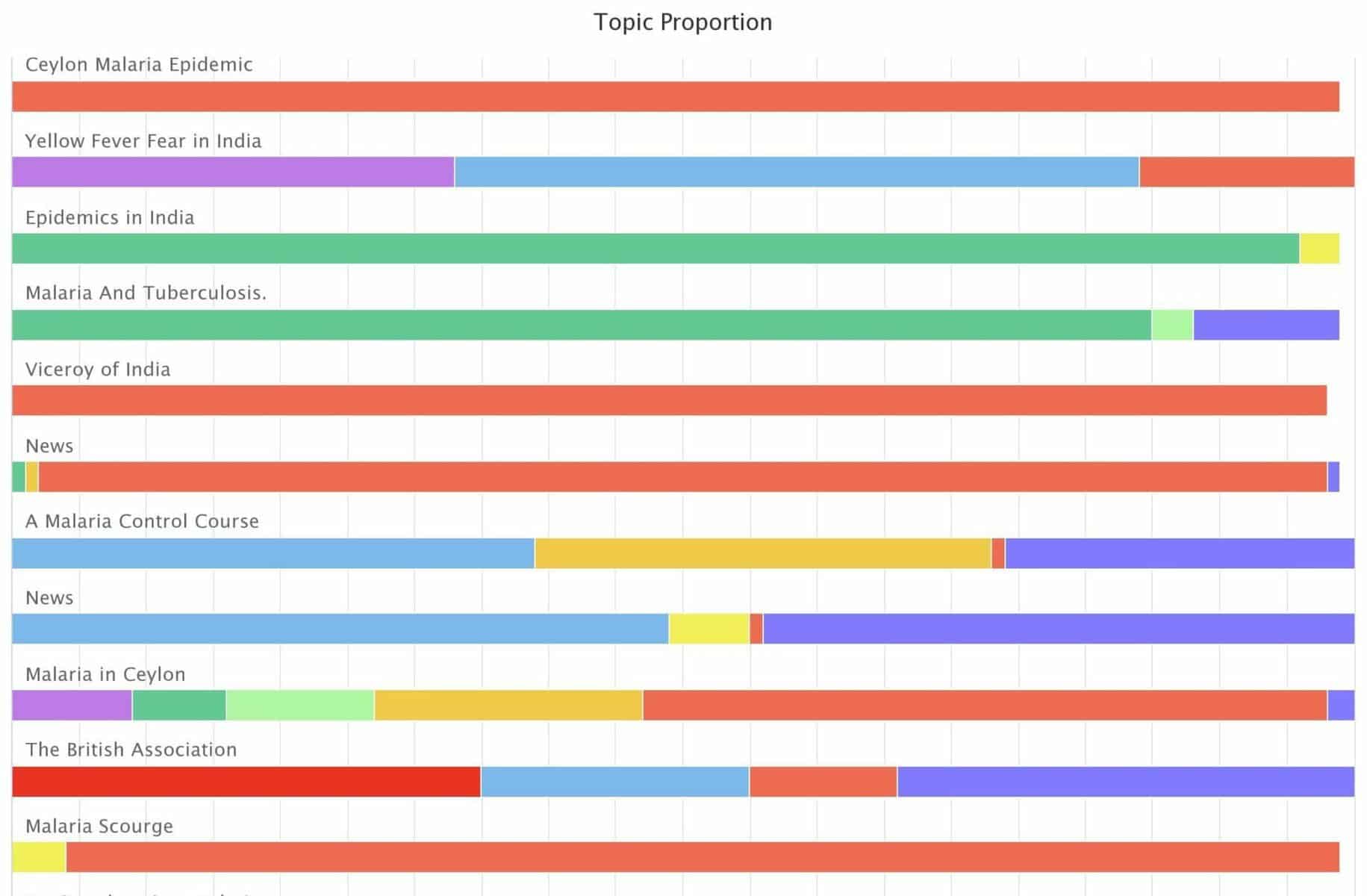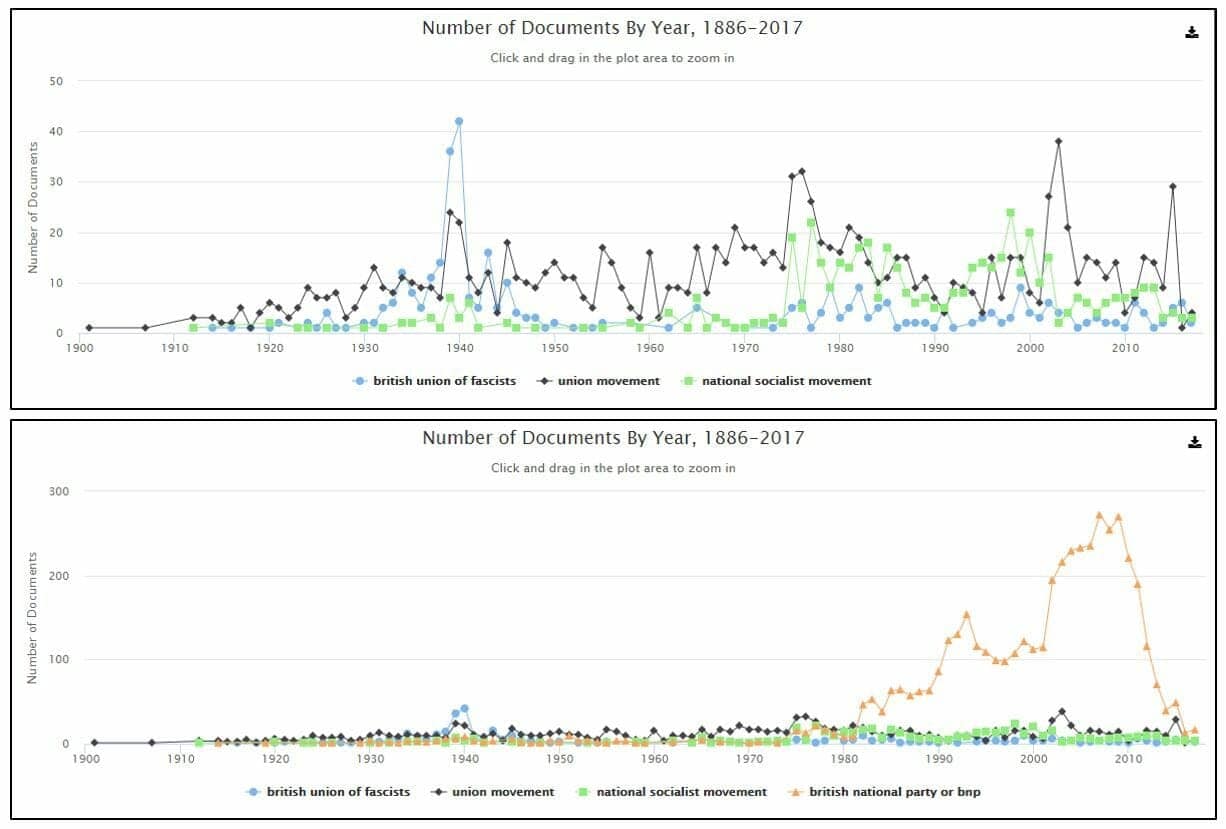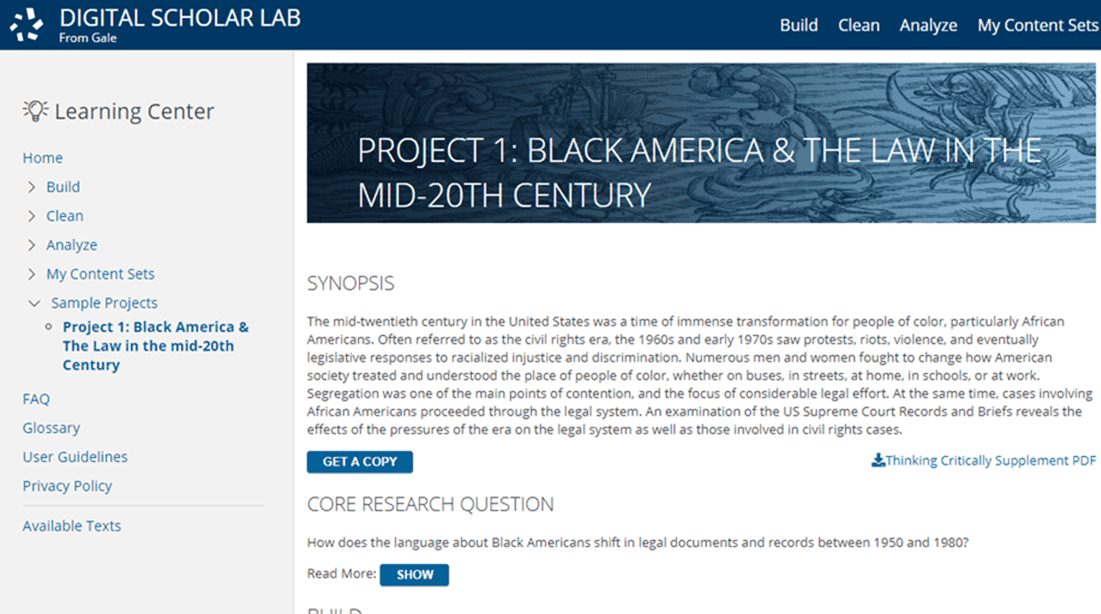│By Sarah L. Ketchley, Senior Digital Humanities Specialist, Gale│
There are many advantages to incorporating work with digital tools in the humanities classroom. As students graduate and transition to the workplace, demonstrable digital literacy is often a pre-requisite for employment, so students are keen to learn such skills, and to articulate what they have learned in a way that makes sense in professional settings.
The next two posts in this ‘Notes from our DH Correspondent’ series will highlight how classroom use of Gale Digital Scholar Lab provides an accessible entry point for faculty who want to teach Digital Humanities (DH) methodologies using text-based humanities data and offer a learning experience that is both relevant and enriching for students. Part I will provide suggestions and examples for drafting a syllabus and for identifying appropriate learning objectives in the DH classroom. Part II will cover ways to present the platform to students new to the field of DH or to working with historical primary source archives, along with suggestions for incorporating project-based learning, developing granular rubrics and options for assessing student work.

